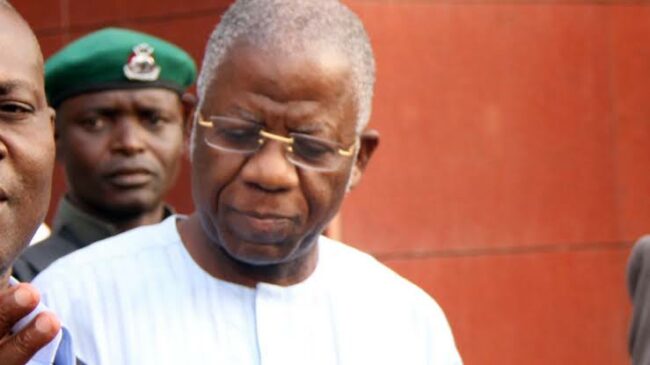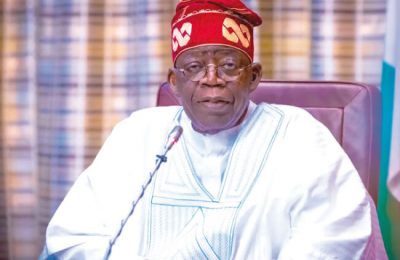Stephen Osagiede Oronsaye is a Nigerian accountant and civil servant who was appointed Head of the Civil Service of the Federation in June 2009.
In 2014, Oronsaye published a report “COST OF GOVERNANCE: ADJUSTING THE STRUCTURES (A Review of the Oronsaye Committee Report and the Federal Government White Paper)”, a report that was approved by the Federal Government of Nigeria by President Bola Tinubu on February 26, 2024.
Oronsaye was born in Lagos on 16 November 1950. His parents hailed from Uhunmwonde and Oredo Local Council Areas in Edo State.

Upon his appointment, he initiated a vigorous reform program. He retired on 16 November 2010 upon reaching the statutory retirement age of 60. He was succeeded by Oladapo Afolabi.
Oronsaye underwent training with the firm of Peat Marwick Cassleton Elliot from 1973 to 1978 and obtained qualification as a Chartered Accountant in 1978. He ascended to the position of Partner within the firm in 1989.
He joined the Federal Ministry of Finance in December 1995, as Director, Special Duties. Oronsaye was responsible for the merger of the Administrative and Accounting functions of the offices of the State House, the computerisation of processes and procedures of the State House, Personnel records, Accounts and Access controls for the offices.
ALSO READ: UN offers support for resettlement of IDPs in Borno

In 1999, he assumed the role of Principal Secretary to President Olusegun Obasanjo, a position akin to that of a Federal Permanent Secretary. Despite not being a civil servant, he was later confirmed as Permanent Secretary of the State House.
In 2006, Oronsaye led the committee tasked with reviewing the Civil Service Rules and Financial Regulations. Subsequently, on 20 August 2008, he was appointed Permanent Secretary of the Federal Ministry of Finance.
Stephen Oronsaye assumed the position of Head of the Nigerian Civil Service in June 2009. Shortly after his appointment, Oronsaye, alongside Ahmed Al-Gazali, chairman of the Federal Civil Service Commission, implemented a new tenure policy restricting the terms of permanent secretaries and directors to eight years.
Consequently, nine permanent secretaries were compelled to retire in October 2009, and numerous directors were anticipated to retire by January 2010.
In November 2009, Stephen Oronsaye informed newly appointed permanent secretaries that they would undergo continuous assessment, with the possibility of termination for poor performance.
However, he reaffirmed that the mandatory retirement age for civil servants would remain either 60 years of age or 35 years of pensionable service, whichever came earlier.
In response to the Central Bank of Nigeria’s decision to remove the boards of five banks and publish a list of debtors in August 2009, Stephen Oronsaye instructed Permanent Secretaries to prohibit ministries, departments, and agencies from withdrawing funds or closing accounts in these banks.
Earlier the same month, Stephen Oronsaye announced a significant reshuffle, reassigning almost half of the Permanent Secretaries to new departments.
In November 2009, he issued a directive for the removal of television sets from all Civil Service offices, citing decreased productivity associated with watching television during office hours.
Also in November 2009, he disclosed ongoing discussions with President Umaru Yar’Adua regarding wage increases for federal civil servants.
In December 2009, he unveiled plans to train 4,600 civil servants by March 2010, aimed at preparing them for the heightened challenges brought about by the new tenure policy and to alleviate stagnation within the civil service.







